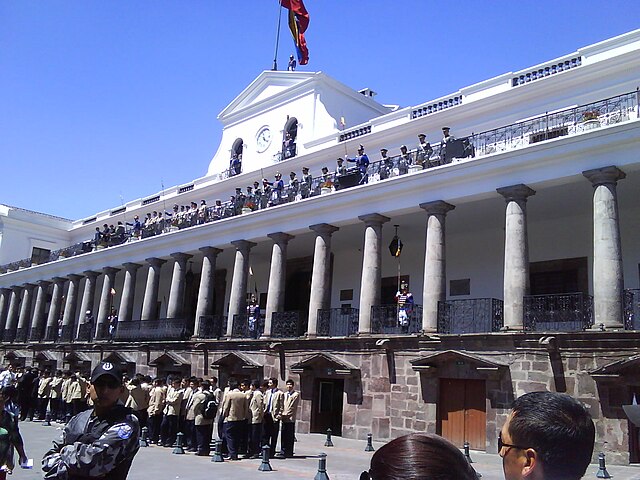New World Information and Communication Order
The New World Information and Communication Order is a term coined in a debate over media representations of the developing world in UNESCO in the late 1970s early 1980s. The NWICO movement was part of a broader effort to formally tackle global economic inequality that was viewed as a legacy of imperialism upon the global south.
Hédi Amara Nouira, Prime Minister of Tunisia from 2 November 1970 til 23 April 1980
Marshall McLuhan leaning on television set on which his image appears, 1967
Indymedia collective at Mato Grosso Federal University in Cuiabá, Brazil hosting a free radio broadcast in 2004.
Second preliminary session of the World Summit Information Society, plenary meeting, 18–25 February 2005, UNO building, Geneva, Switzerland.
The United Nations Educational, Scientific and Cultural Organization (UNESCO) is a specialized agency of the United Nations (UN) with the aim of promoting world peace and security through international cooperation in education, arts, sciences and culture. It has 194 member states and 12 associate members, as well as partners in the non-governmental, intergovernmental and private sector. Headquartered in Paris, France, UNESCO has 53 regional field offices and 199 national commissions.
UNESCO offices in Brasília
UNESCO Institute for Water Education in Delft
The Garden of Peace at UNESCO headquarters
Carondelet Palace, Presidential Palace – with changing of the guards. The Historic Center of Quito, Ecuador, is one of the largest, least-altered and best-preserved historic centres in the Americas. This centre was, together with the historic centre of Kraków in Poland, the first to be declared World Heritage Site by UNESCO on 18 September 1978.








